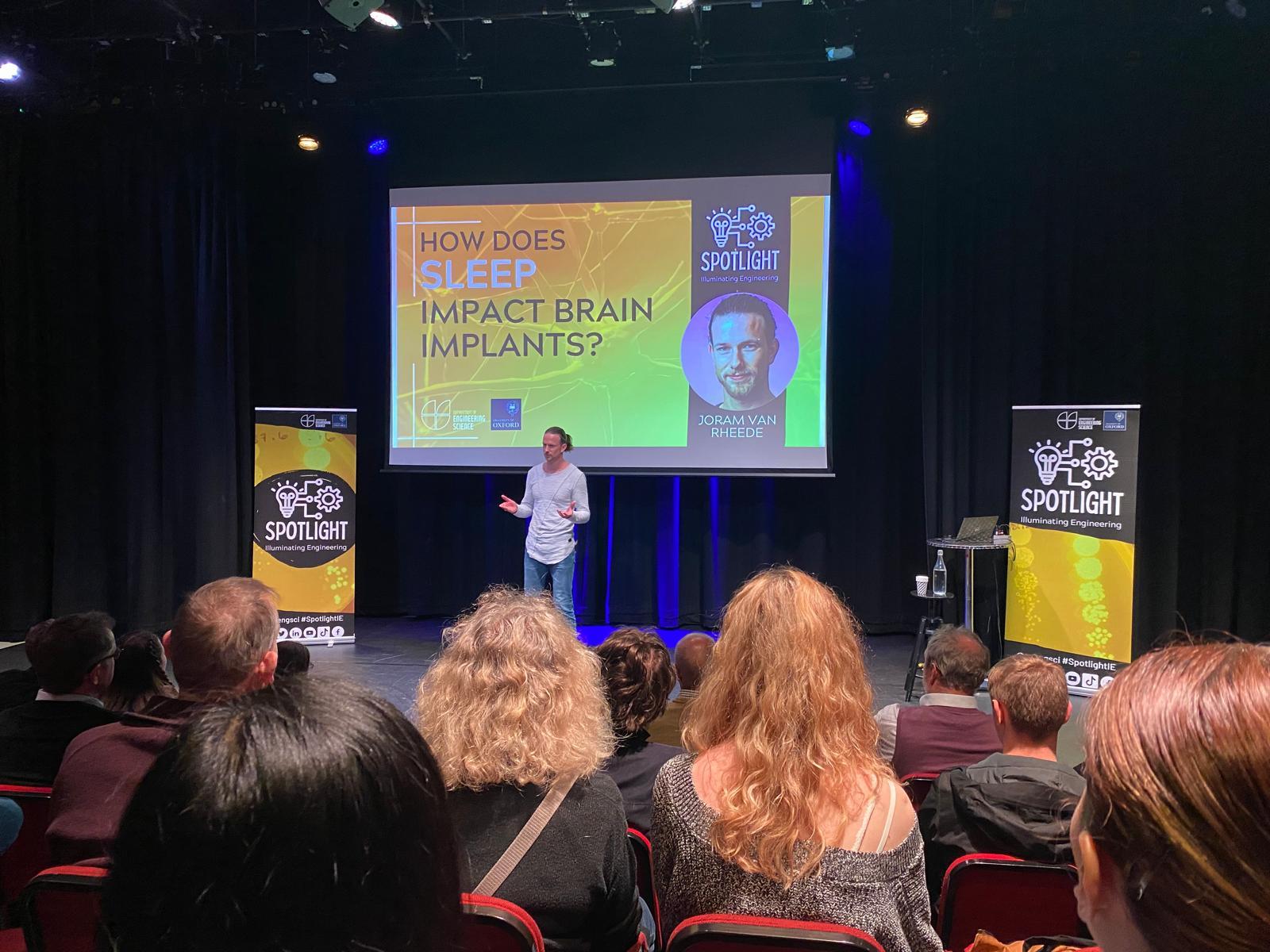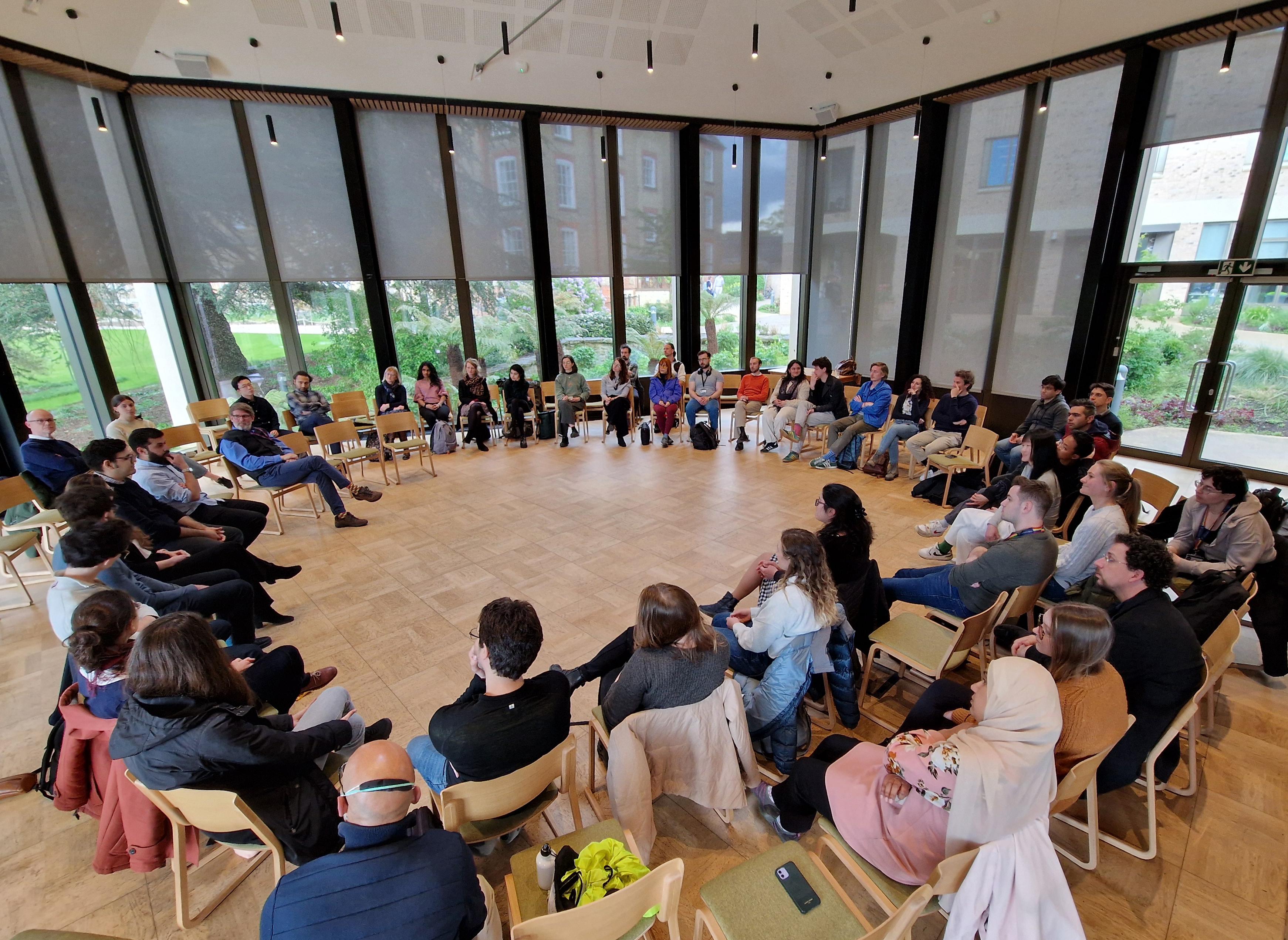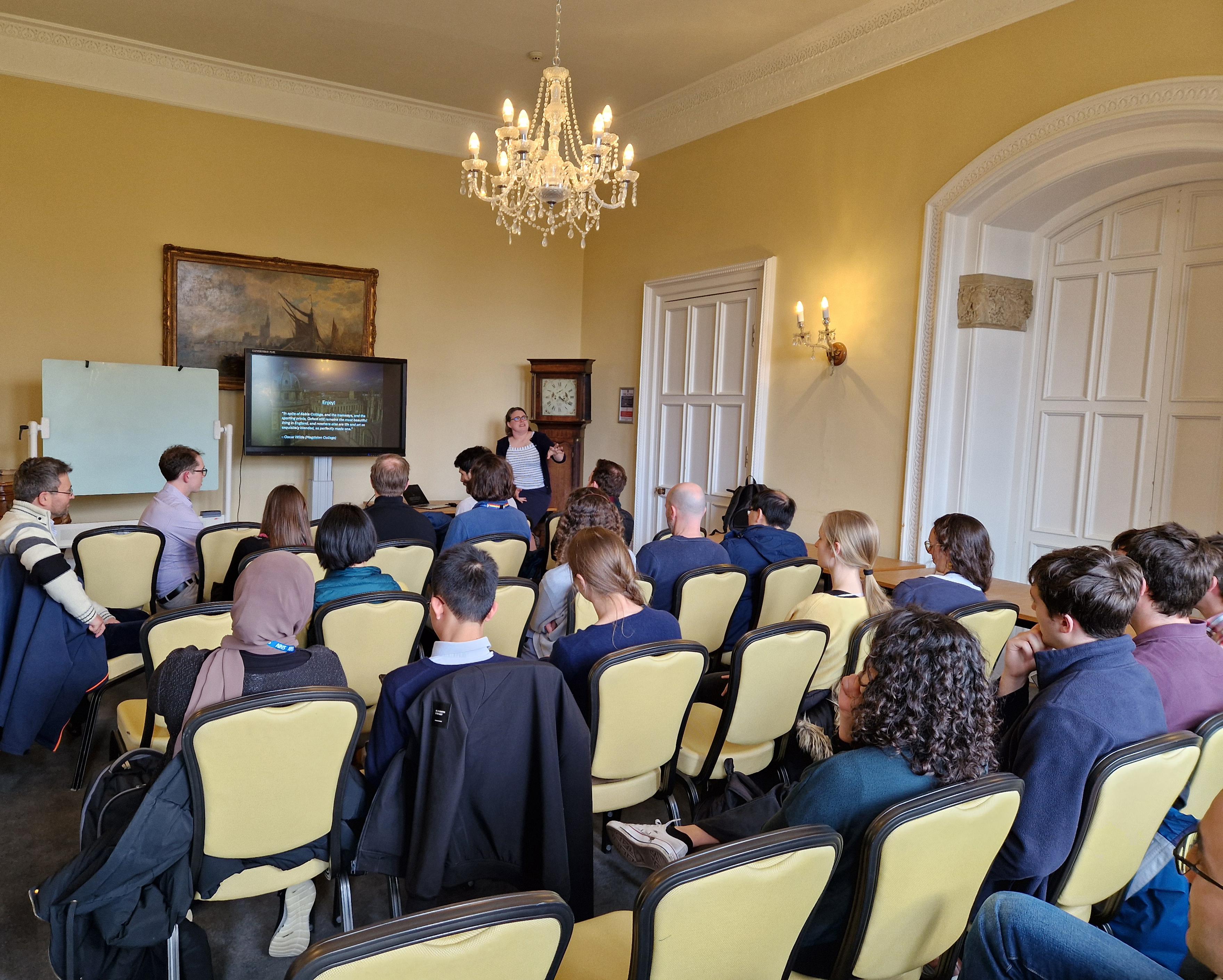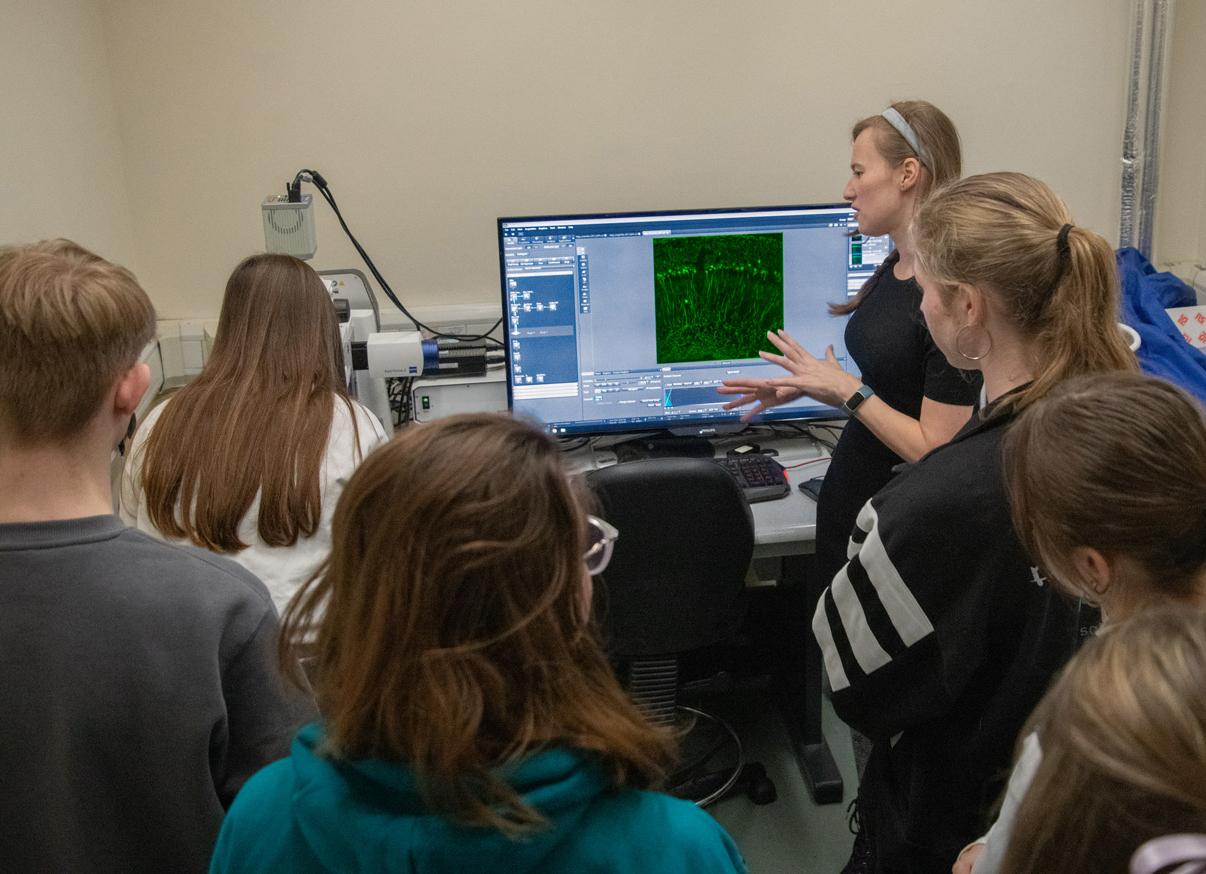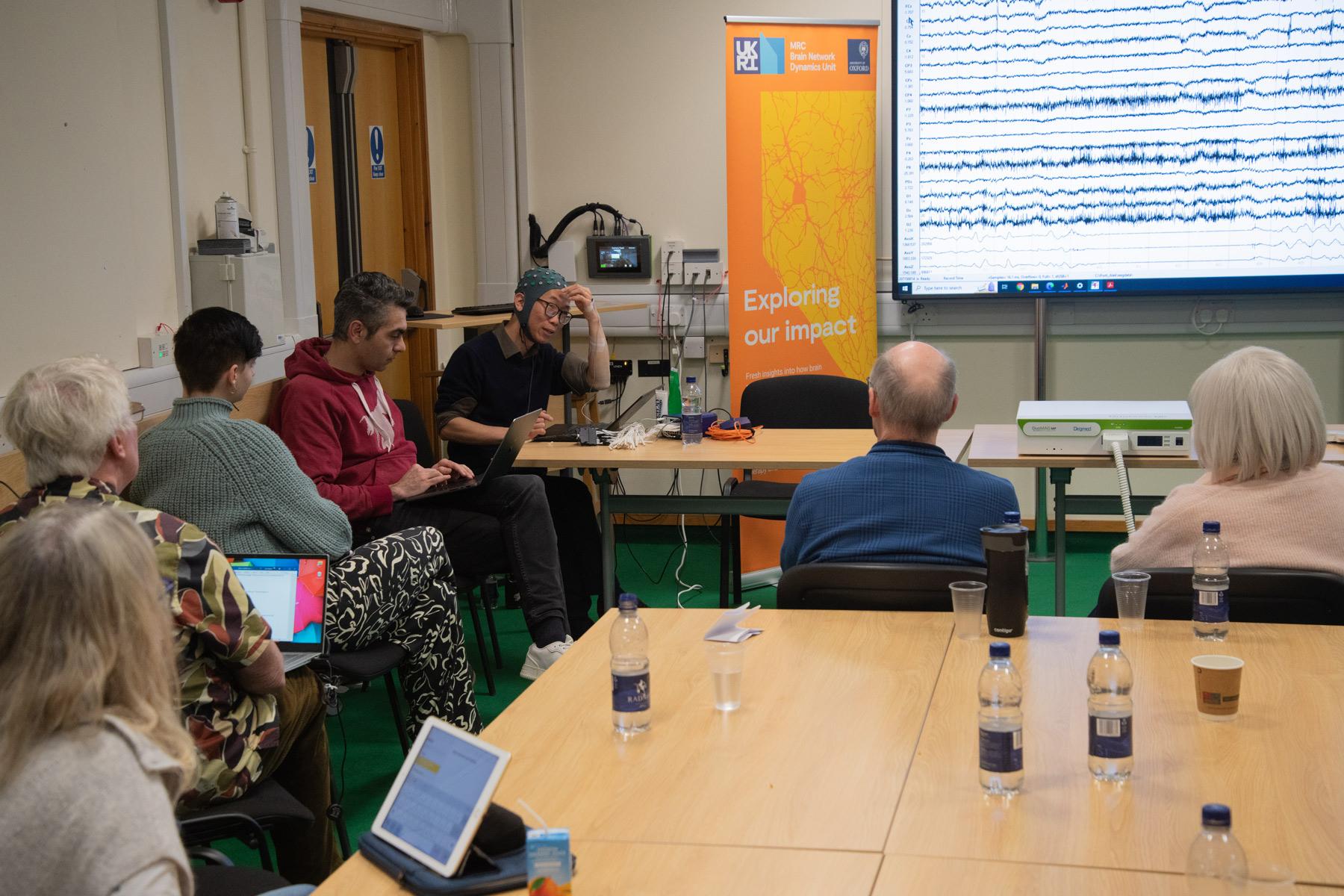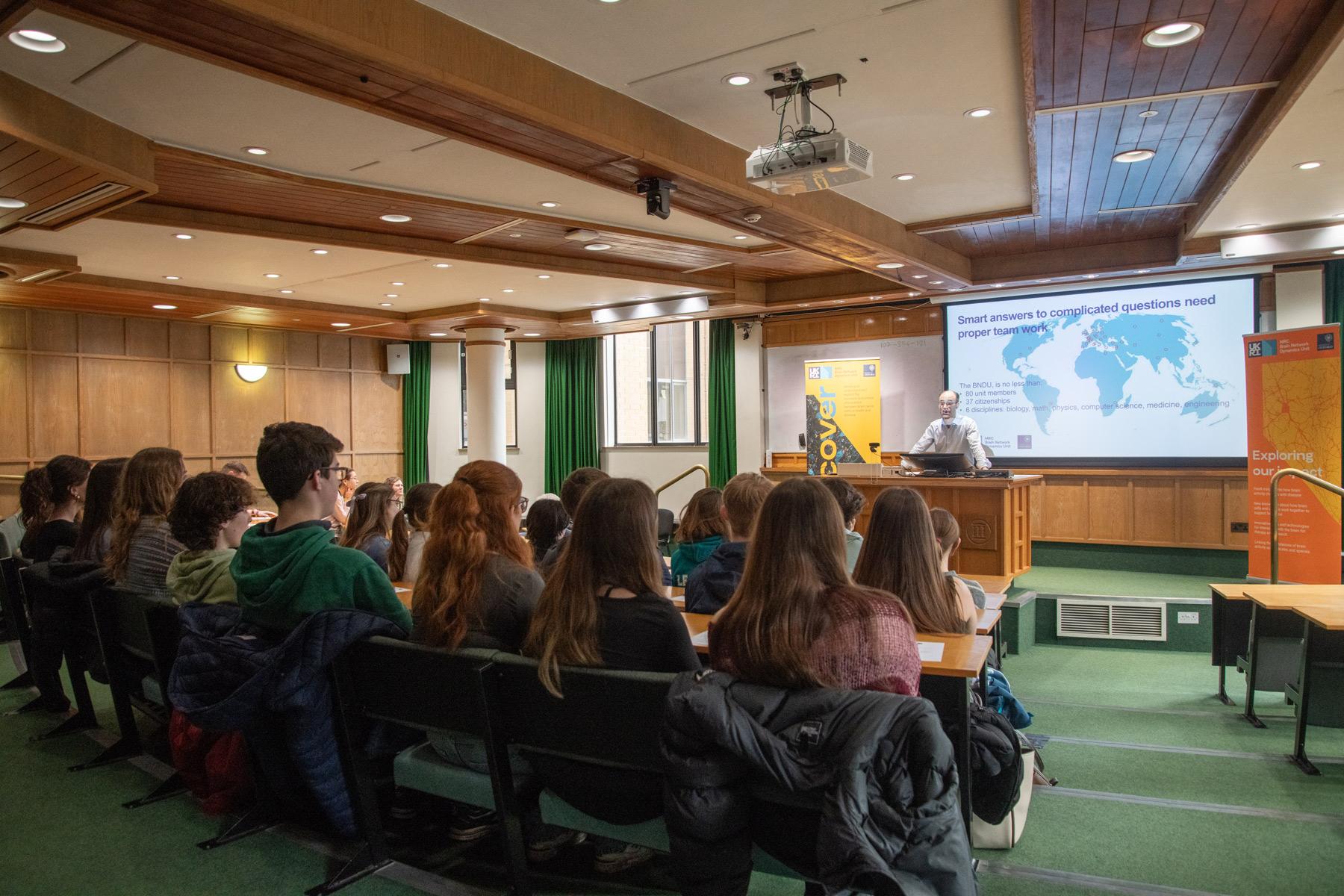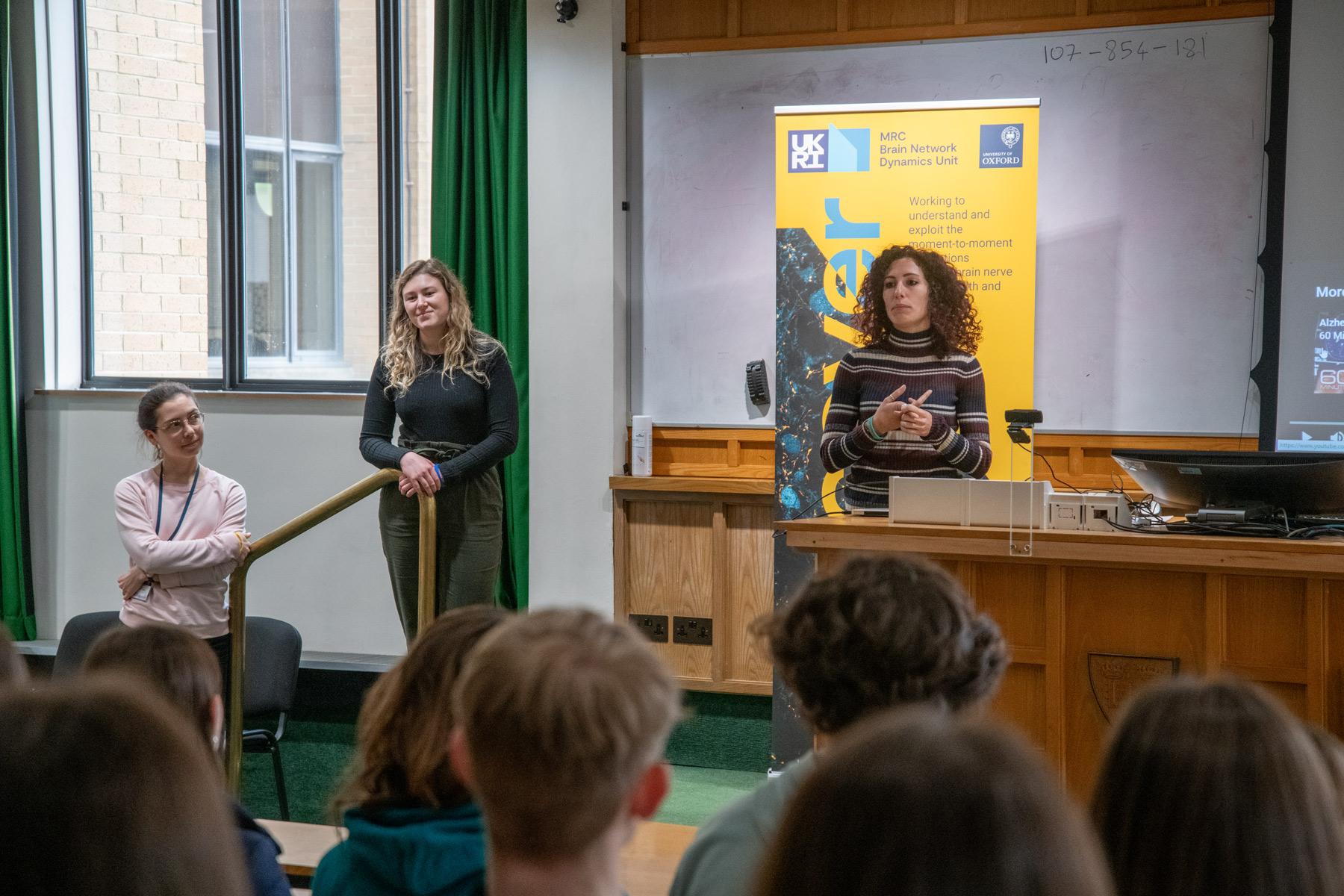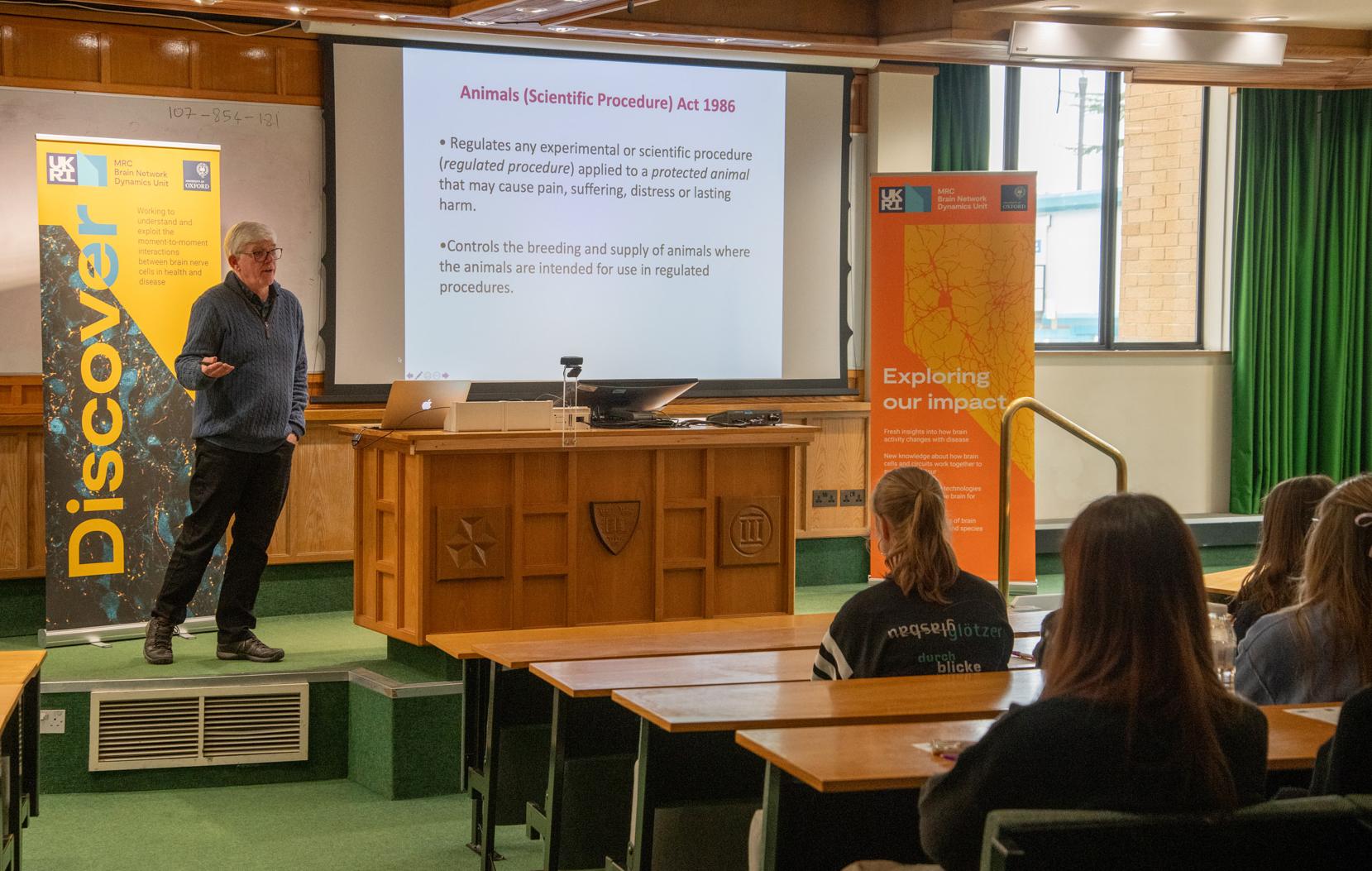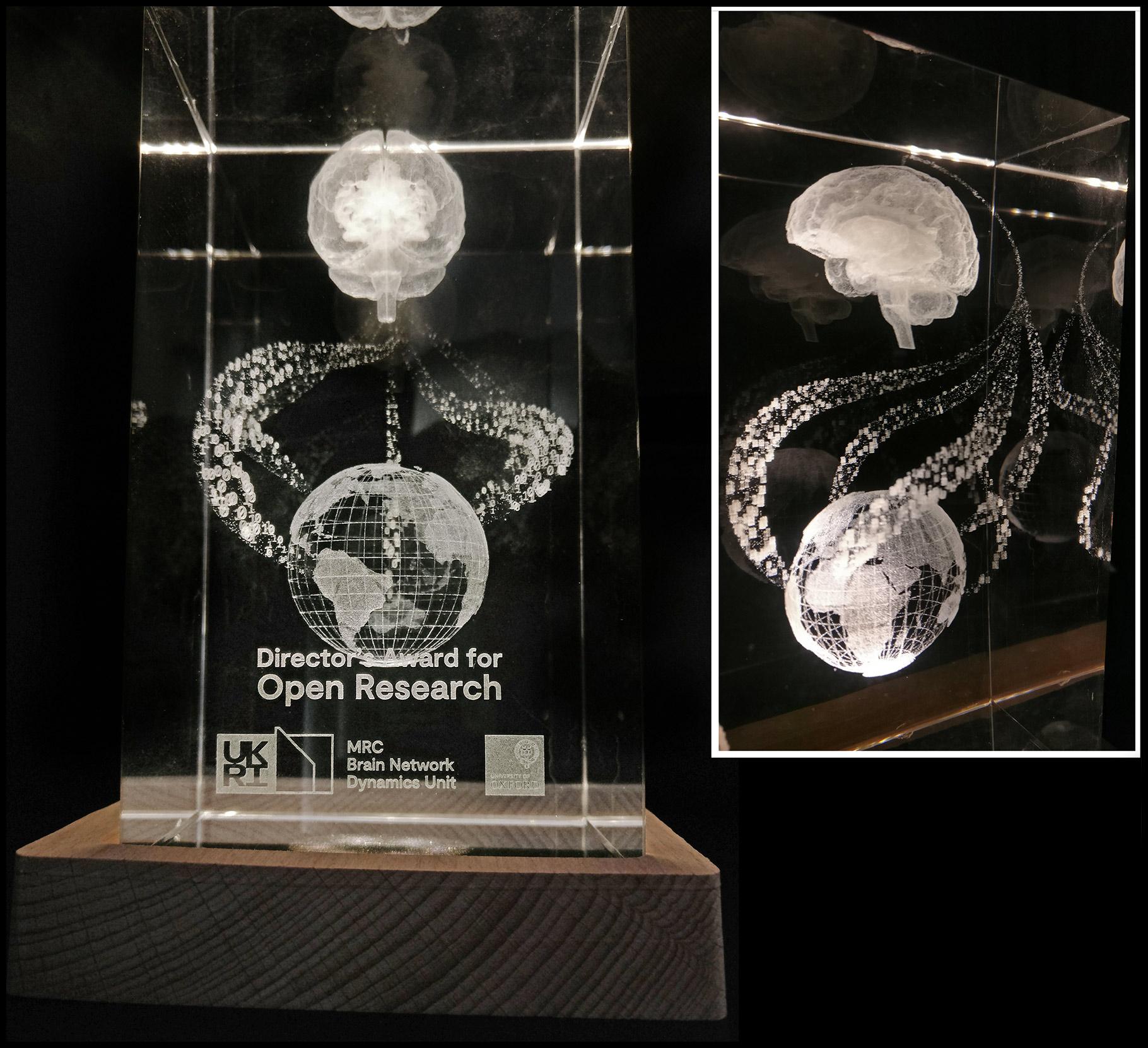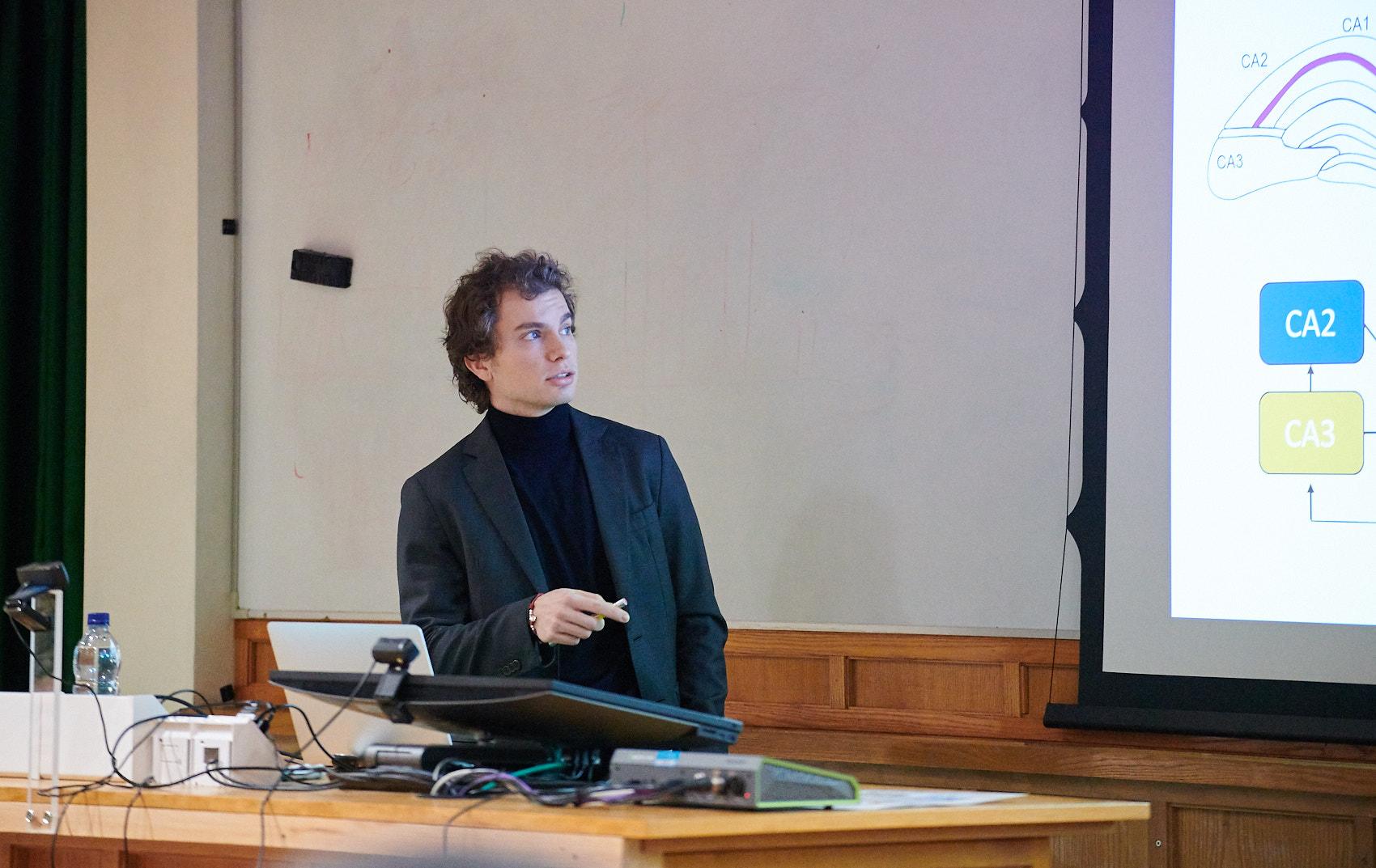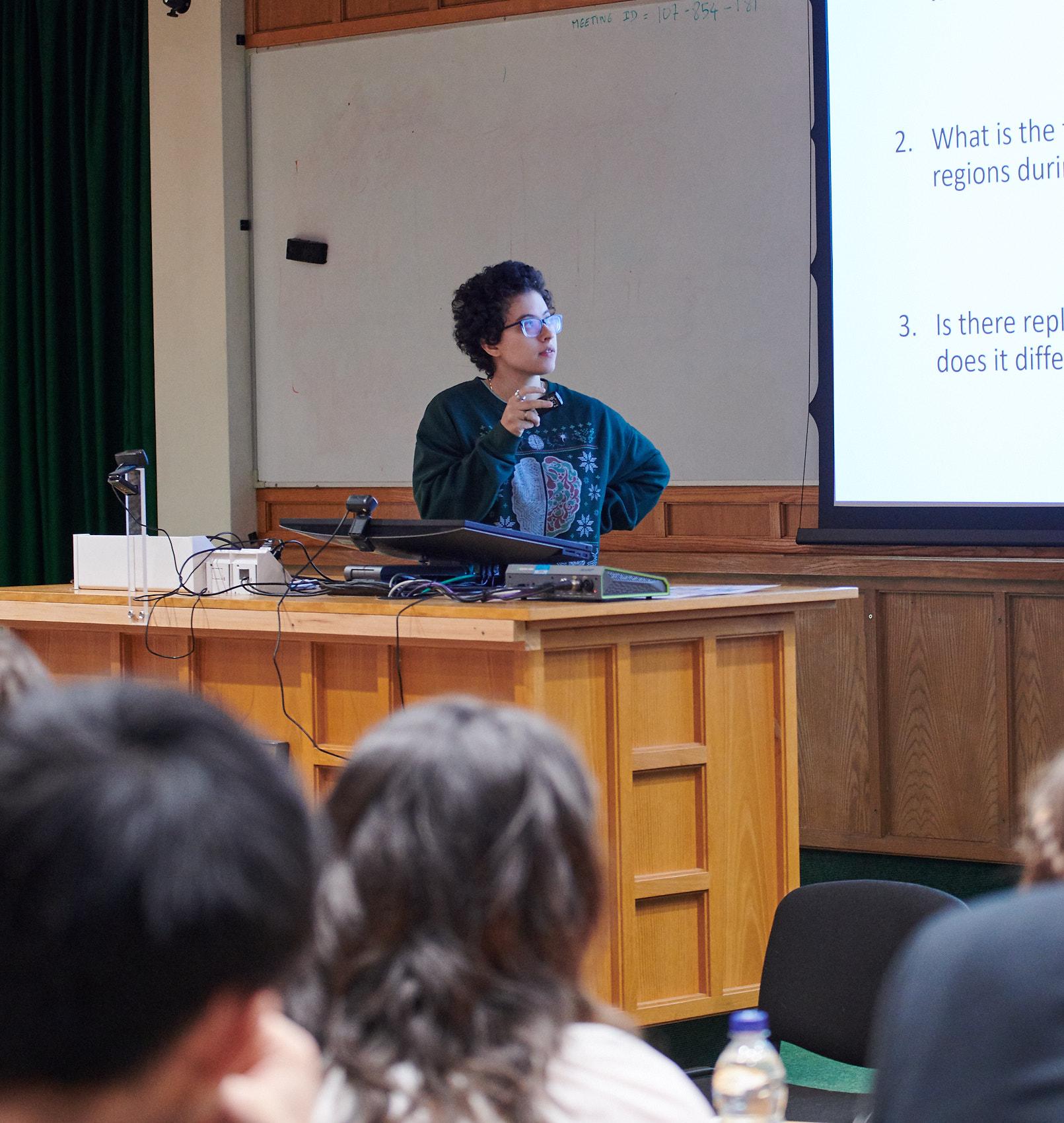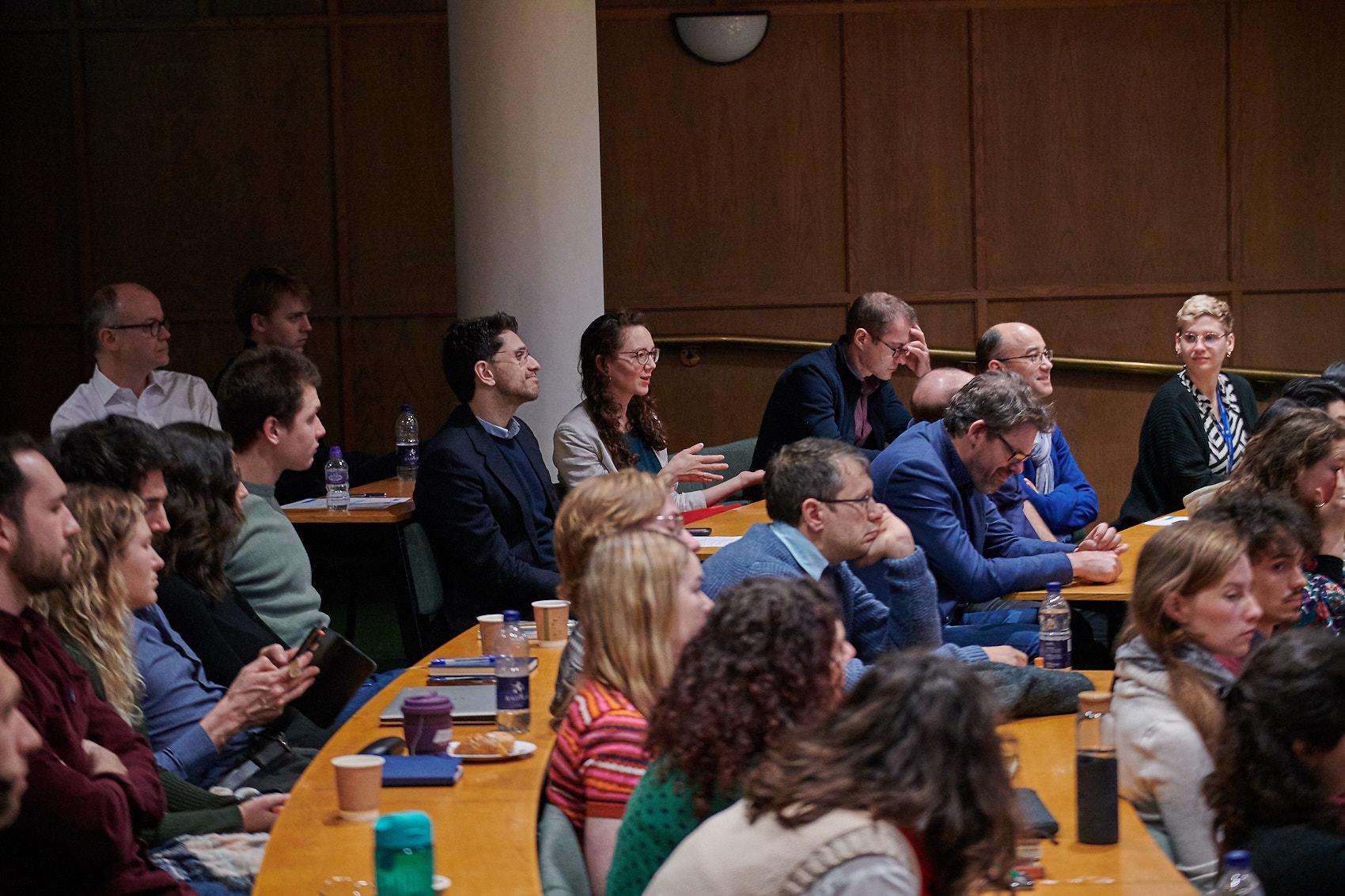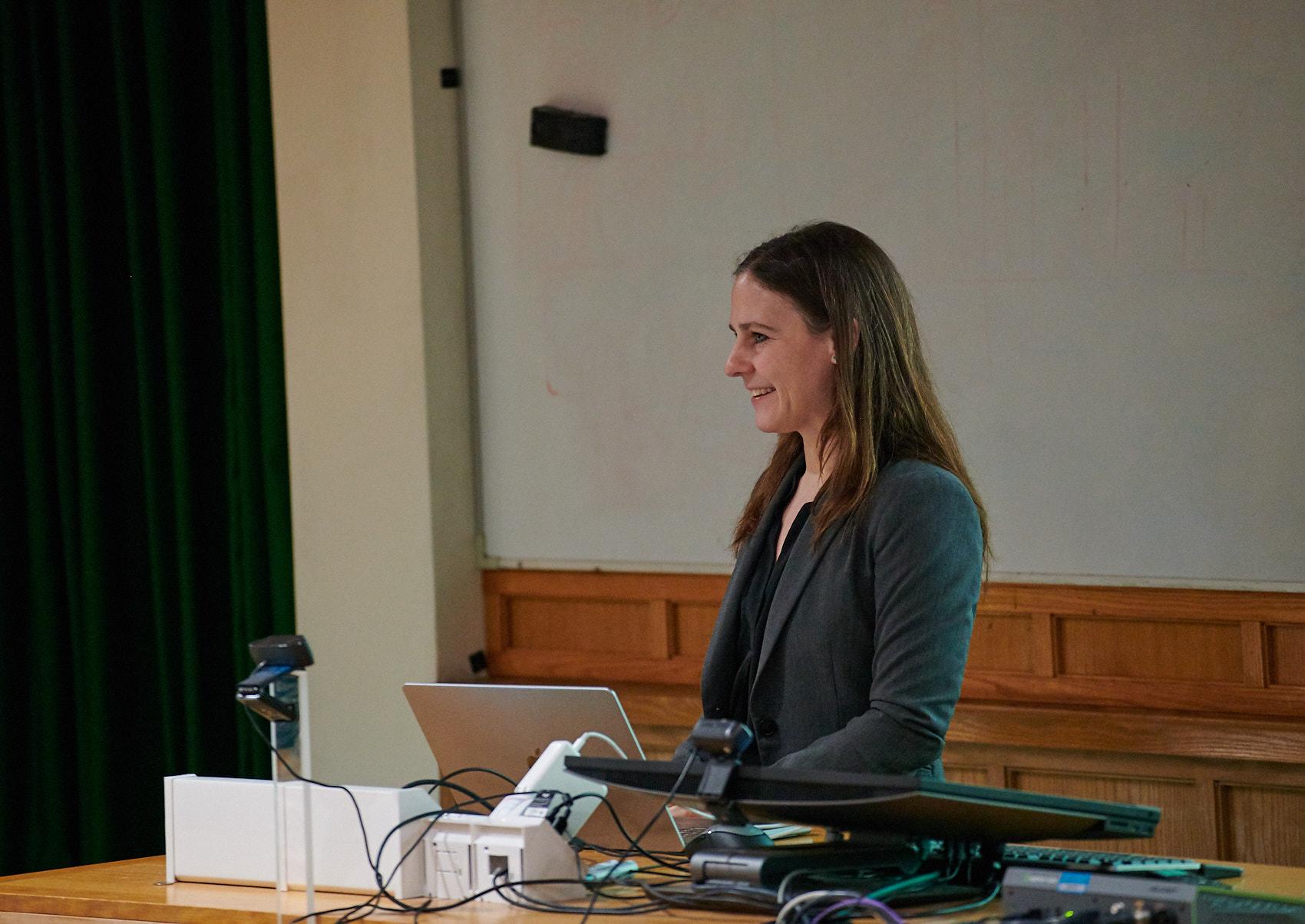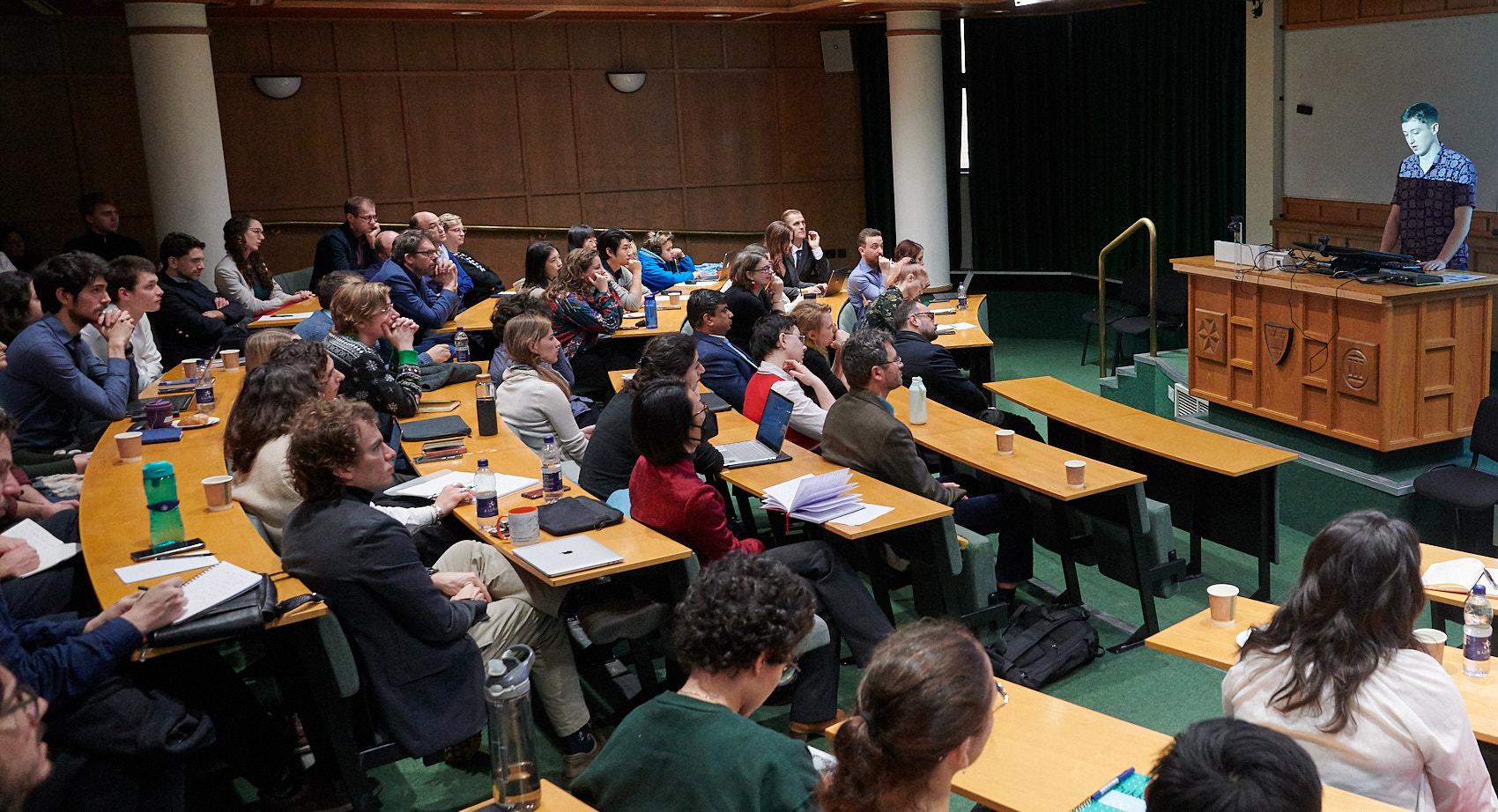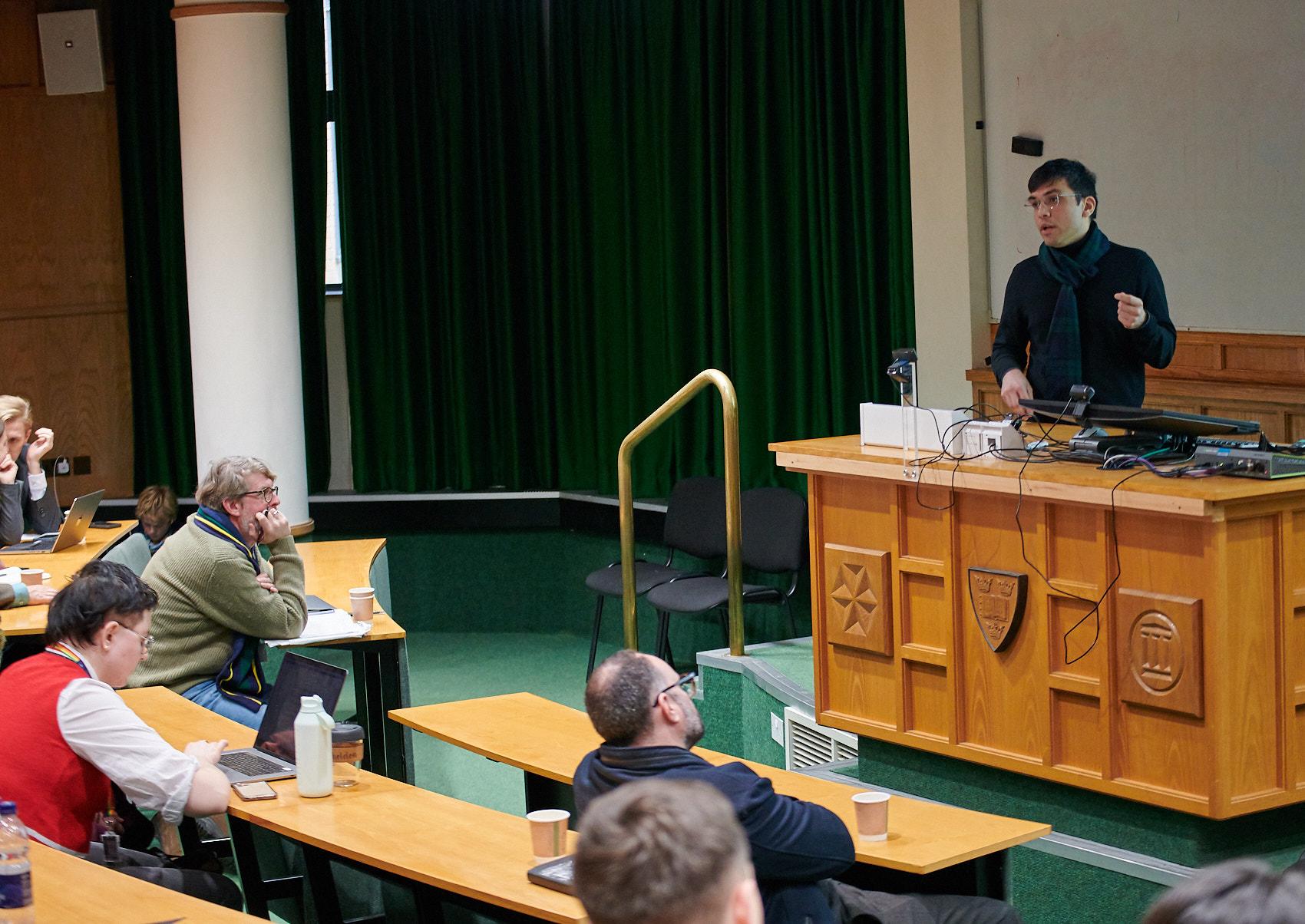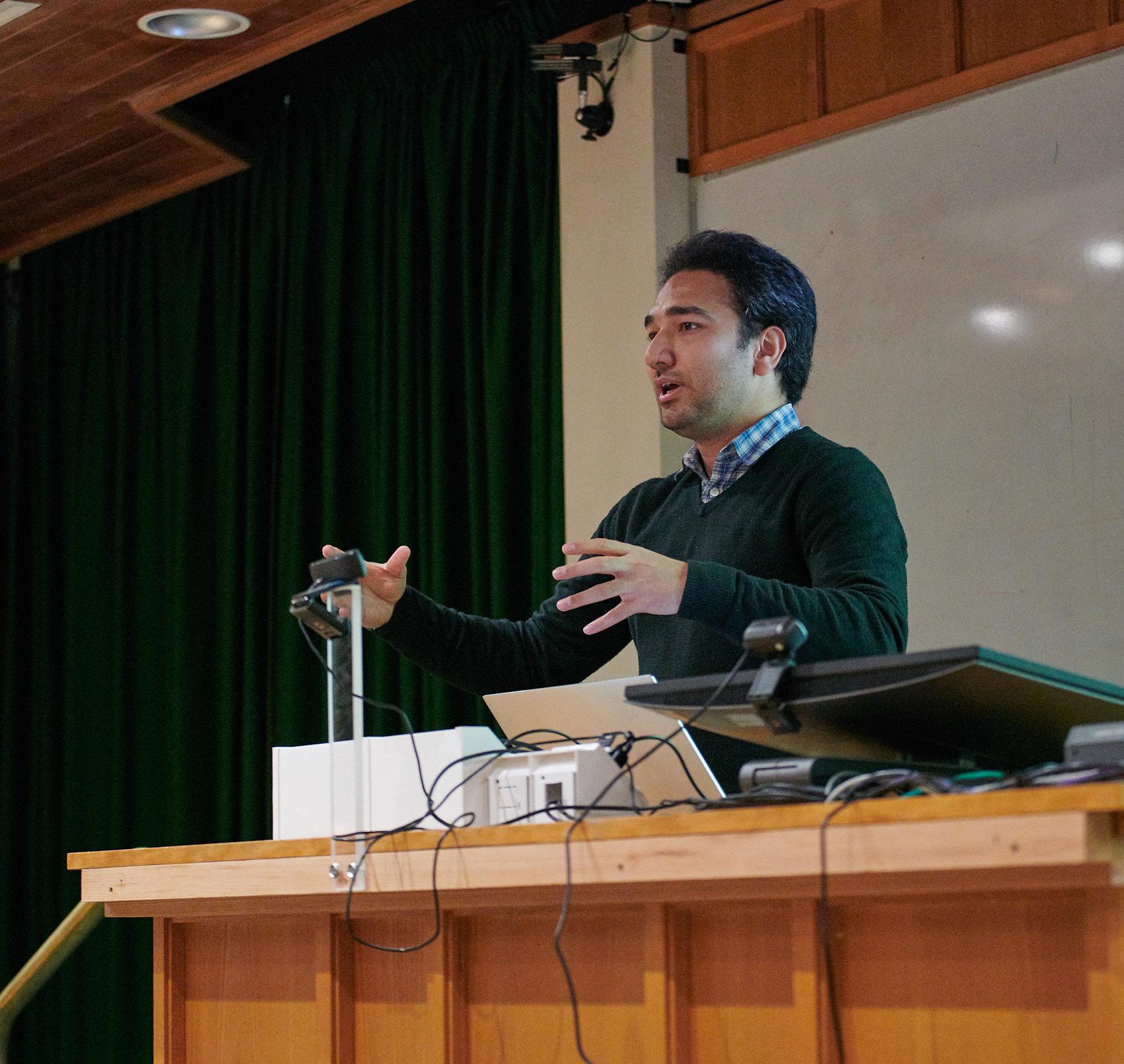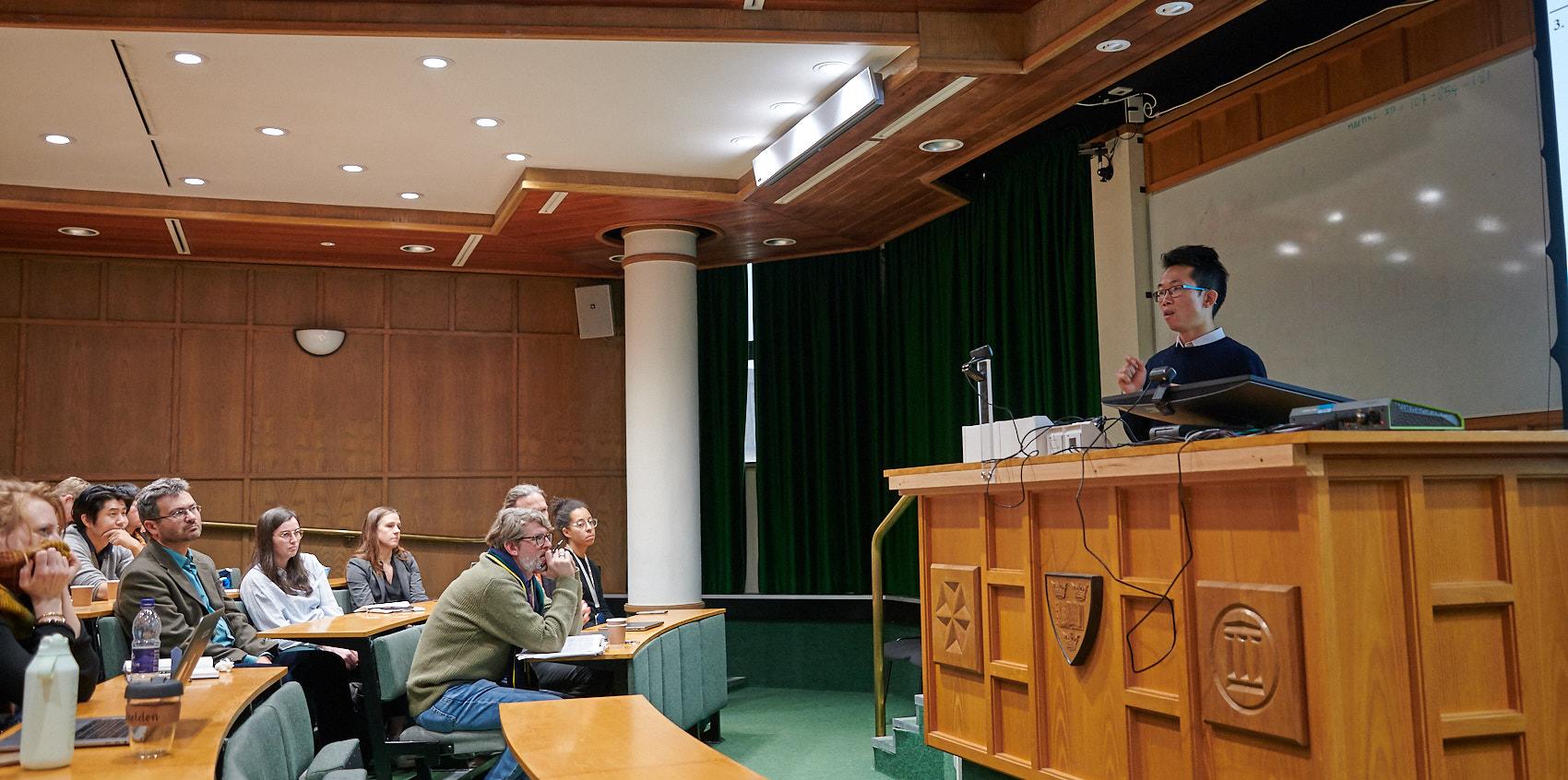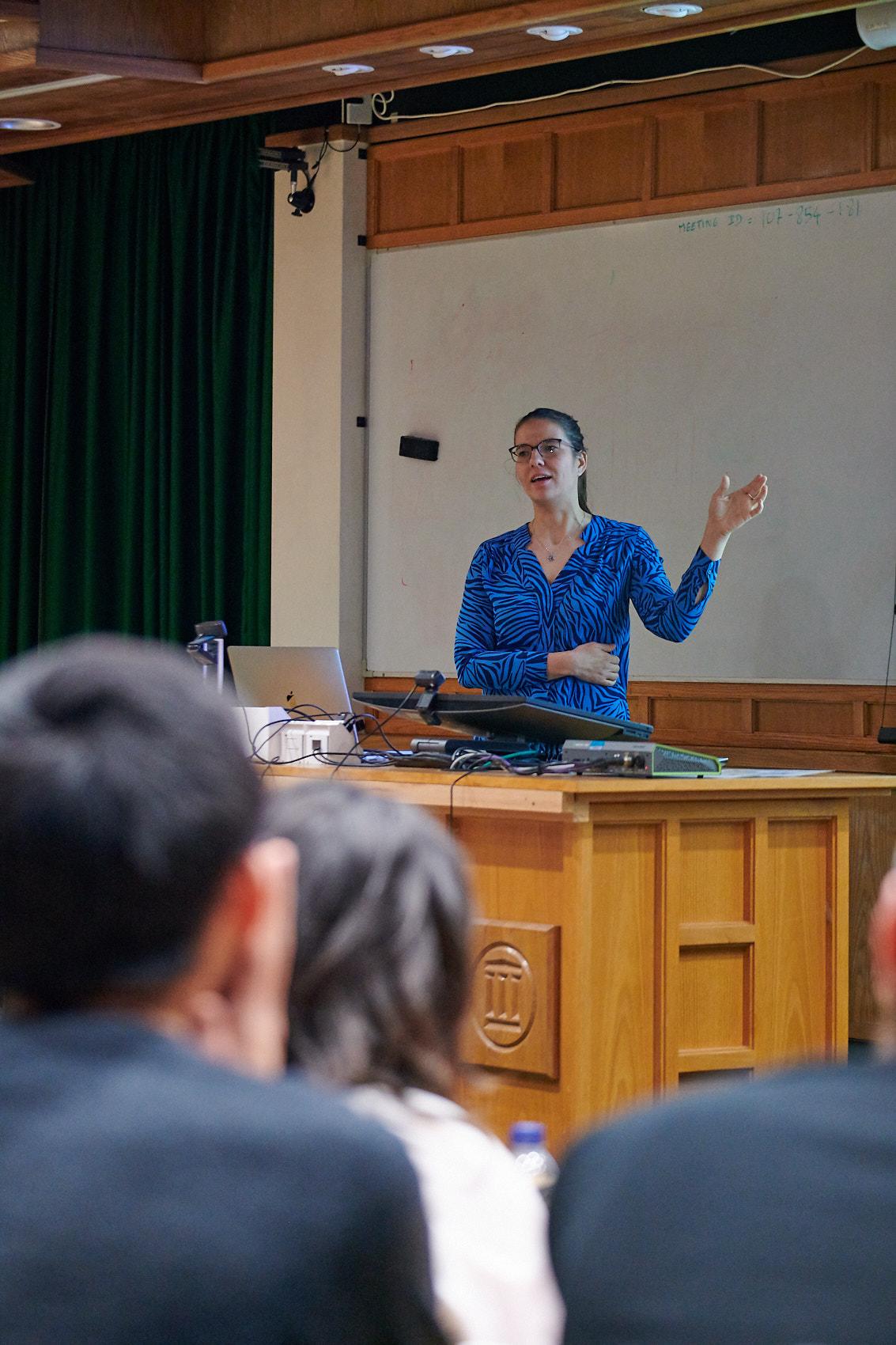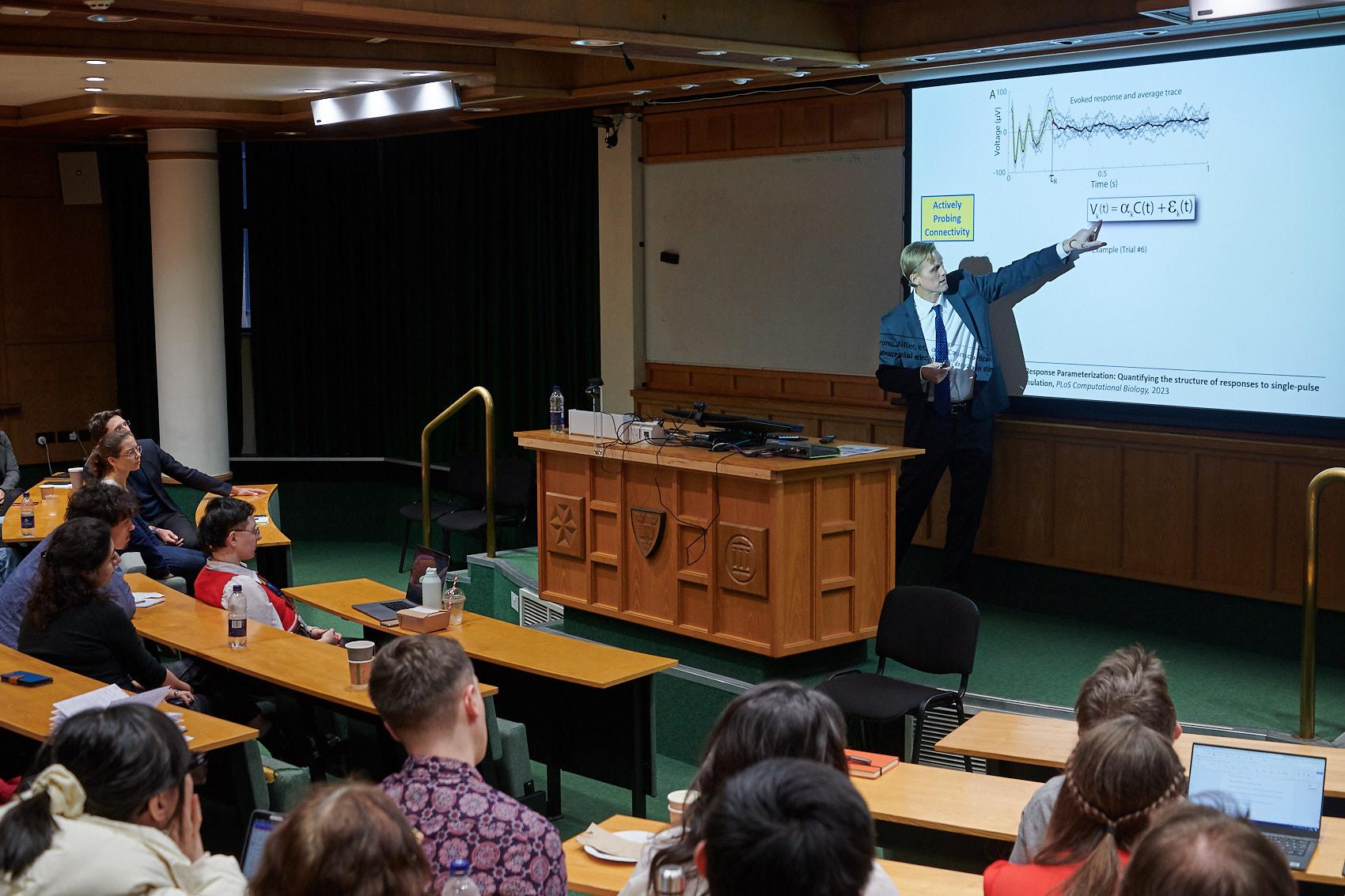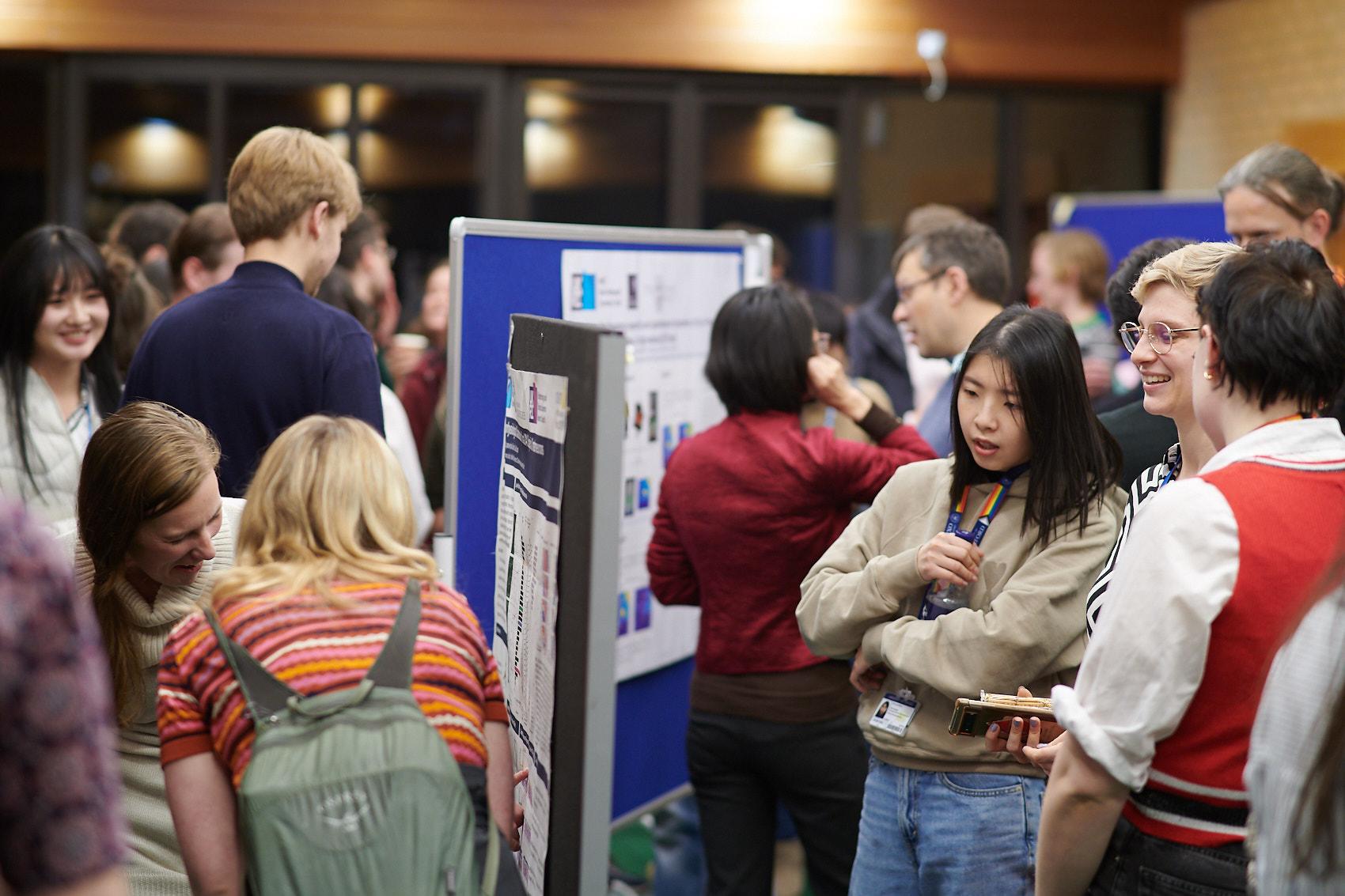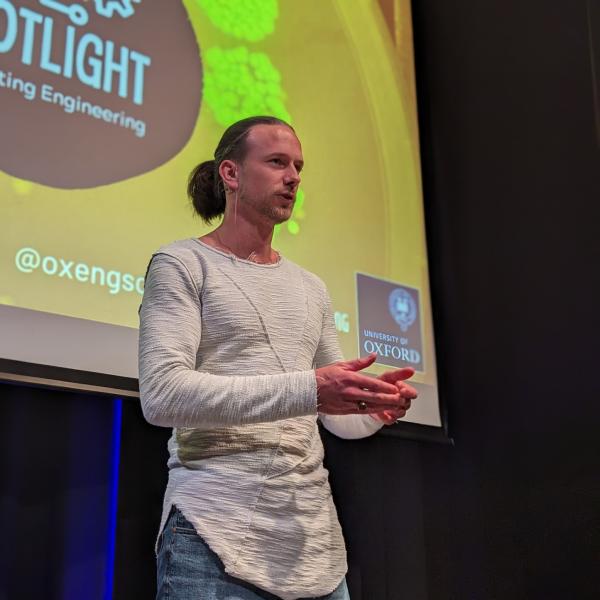
Unit Postdoctoral Neuroscientist Dr. Joram van Rheede participated in the 'Spotlight on Engineering' public engagement talks at the Old Fire Station theatre in Oxford on the 17th April. The evening featured 6 speakers all giving 10-15 minute talks on engineering-related research. Joram presented on the interaction between deep brain stimulation therapy and sleep, highlighting research carried out by the Denison Group and Sharott Group at the Unit, as well as collaborations with the neurosurgical teams at the John Radcliffe Hospital, Great Ormond Street Hospital, and King’s College Hospital.
Joram commented, "It was great to work with colleagues from the Department of Engineering Science to put on a set of talks for a general audience. We participated in a public speaking workshop and practice sessions to help us craft a compelling narrative about our work, finding metaphors to explain important principles, and avoiding specialist jargon. The response from the audience was great- the questions were more stimulating than the ones we get at science conferences!"
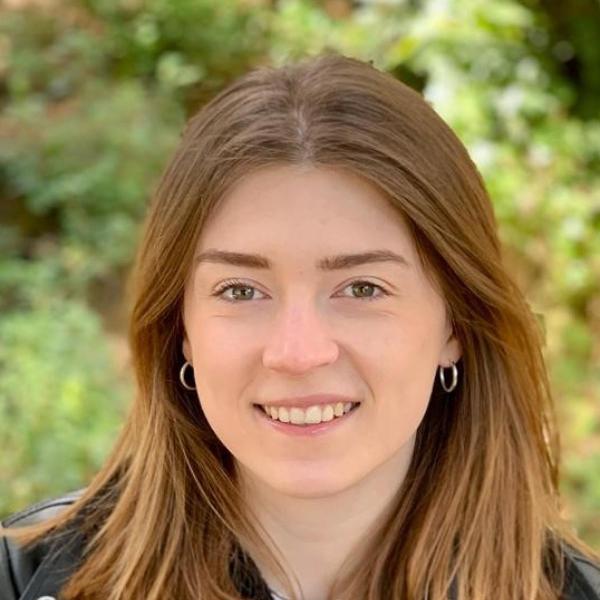
We are pleased to welcome Dr. Helen Collins to the Unit as a Postdoctoral Neuroscientist in the Magill Group.
Helen holds a B.A. in Cell and Systems Biology, an M.Sc. in Neuroscience, and a D.Phil. from the University of Oxford. Helen’s doctoral research investigated the neurobiological mechanisms of selective serotonin reuptake inhibitor discontinuation syndrome in mice, using a range of behavioural and neurochemical techniques. After finishing her D.Phil. in 2023, Helen worked at a biotechnology company in Oxfordshire focused on developing novel treatments for Alzheimer’s; she led a small molecule drug discovery project and established the in vivo programme of work for a mouse model of the disease.
Here in the Unit, Helen will be using fibre photometry and electrophysiology in behaving mice to characterise the signalling dynamics of dopamine and other neuromodulators in the striatum in health and experimental Parkinsonism.
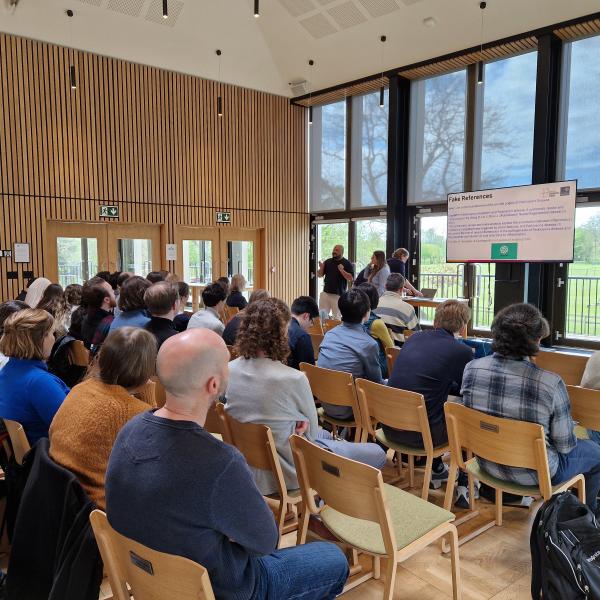
The Unit held its ninth annual Training & Careers Development Event on Tuesday 16th April. Unit members, together with colleagues from across the University of Oxford, were treated to a range of engaging presentations and workshops, each of which was accompanied by a lively Q & A session.
Unit Director Professor Peter Magill started the Event by recapping some key aspects of the Unit’s approach to training and career development. This was followed by an insightful joint presentation by Dr Anshul Thakur and Dr Elena Gal of the University Department of Engineering Science about the use of Artificial Intelligence and Large Language Models as research tools. Dr Susan Black of the University’s Careers Service then gave a talk and some welcome advice on honing interview skills.
In the first of two break-out workshops held after refreshments, Unit Group Leader Professor Charlotte Stagg led an interactive discussion about how to thrive at Oxford. In the second workshop, Unit Group Leader Professor Tim Denison chaired a session during which some of the Unit’s alumni offered their insights about thriving in careers in academia and industry outside of Oxford.
Professor Stagg, Chair of the Unit’s Training & Career Development Committee, commented “The training and career development of all our members is hugely important to the Unit, and we were delighted to host another successful training event at St Hilda’s College. Unit members actively engaged in a wide range of sessions, and we were particularly pleased to welcome back some of our wonderful alumni to speak about their career paths after leaving the Unit. Thank you to all our speakers and to the Committee for all their hard work.”
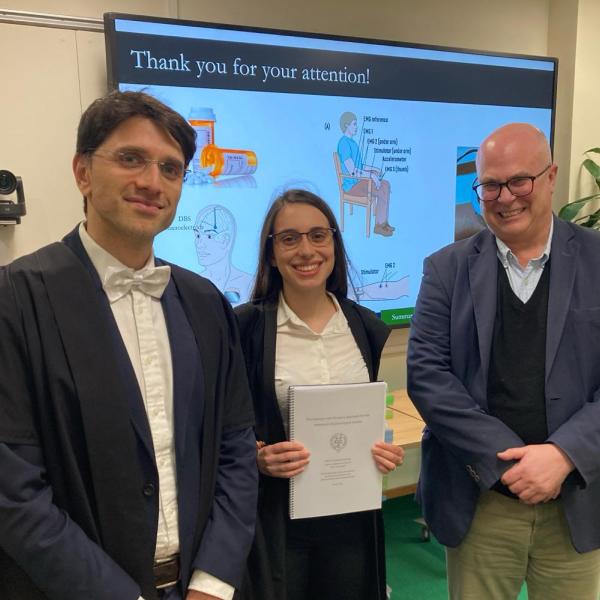
Our congratulations go to Unit D.Phil. student Beatriz Silveira de Arruda for successfully defending her doctoral thesis, entitled “Developing a non-invasive approach for the treatment of pathological tremor”, in her viva voce examination on 27th March 2024.
Beatriz’s viva examiners were Professor Simon Farmer (University College London) and Dr Ashwini Oswal (University of Oxford).
Beatriz was supervised by Professors Hayriye Cagnan, Tim Denison and Huiling Tan at the MRC BNDU.
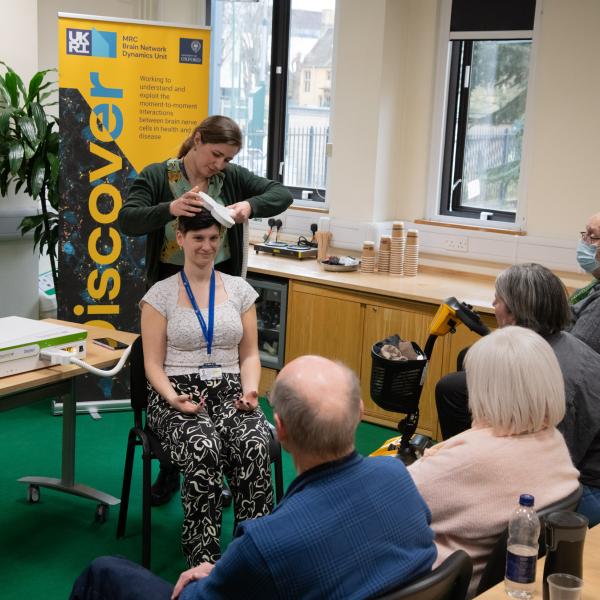
On 14th March, the MRC Brain Network Dynamics Unit once again welcomed stakeholders onsite for its annual Open Day.
In the morning, the Unit opened its doors to pupils and teachers from local state-funded schools as they visited to learn more about STEM (Science, Technology, Engineering and Mathematics) and medical research. During their visits, pupils talked informally to Unit staff and students about key concepts and challenges in brain research, as well as careers in STEM. Special emphasis was also placed on giving pupils the opportunity to see real working instruments and laboratories. The visit started with a group introductory session, where pupils viewed the “The Symphony of the Brain” film showcasing the Unit’s work, followed by a discussion around the use of animals in research. After that, the pupils rotated in small groups through different hands-on activities that were led by the Unit’s early-career researchers and highlighted some of the Unit’s key research themes. These activities included a lab-based session exploring anatomical and electrophysiological studies of the brain using rodents, a demonstration of human brain stimulation, a computer game simulating patterns of brain activity, and a live demonstration of a brain-computer interface. The visit concluded with a wrap-up session capturing feedback.
In the afternoon, the Unit welcomed members of its Patient and Public Advisory Group (PPAG). After lunch with some of the Unit’s early-career researchers, PPAG members were offered a tour of activities and facilities in which they could see some ongoing research for themselves. Each of the activities was integrated with a lively discussion session, stimulating further conversations about Unit research in the clinic and at the lab bench. The visit concluded with refreshments, a final Q & A session, and a chance for the PPAG to give their feedback to the Unit team.
The Open Day received highly positive feedback from students, teachers, and PPAG members:
Comments from the schools included “This was excellent! Great combination of whole group talk introduction, smaller group activities, chance to ask questions, chance to hear about pathways into research.”
Comments from PPAG members included “Thanks for a great afternoon! Fantastic presentations, and a lovely team.” and “I thoroughly enjoyed the afternoon. I felt very well welcomed. Everyone was easy to talk to in the relaxed environment you created.”
Unit Director Professor Peter Magill commented “Another great Open Day at the MRC BNDU. Visitors and Unit hosts were clearly excited to be involved, and the conversations were rewarding for all. Effective public engagement often requires teamwork and diverse contributions, and it was great to see thirty Unit members come together to organise and deliver the Open Day.”
The Unit’s Open Day was one of many engaging events held at the University of Oxford and further afield during Brain Awareness Week 2024.
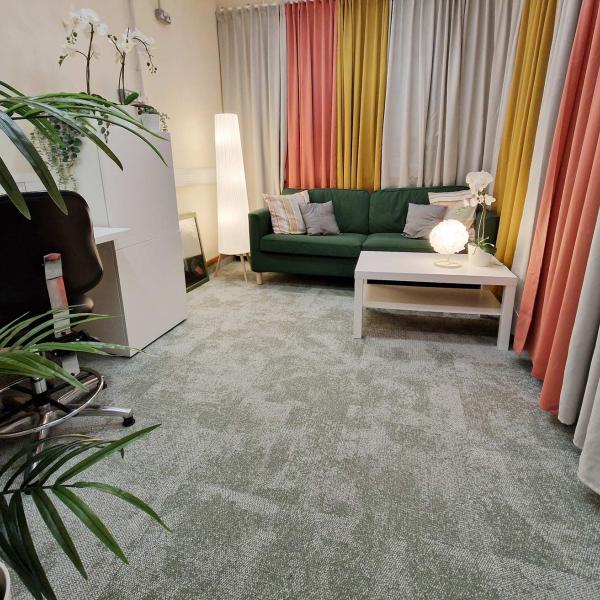
We are pleased to announce that the Unit has opened its new Wellbeing Room.
The Wellbeing Room is a dedicated onsite quiet space, set aside from the usual working environment, and is designed to support activities such as prayer, meditation, breastfeeding or expressing milk. It was established in partnership with the Nuffield Department of Clinical Neurosciences and the Department of Pharmacology, and has already received high praise from its users:
“I regularly use the wellbeing room to express milk for my baby. I love the space! The room is warm, comfortable, quiet and a very calming and relaxing space.”
“I like using the room for mindfulness and doing some stretches when I’ve been too stationary or done lots of close-focussed work during the day. It’s a beautiful and calm space that feels warm and welcoming.”
Unit Director Professor Peter Magill commented “Enhancing wellbeing at work brings many benefits to our staff and students and helps underpin our positive research culture. We created the Wellbeing Room in response to feedback from Unit members and our Equality, Diversity & Inclusion Working Group, and I am delighted that the space is already well used and valued by so many.”
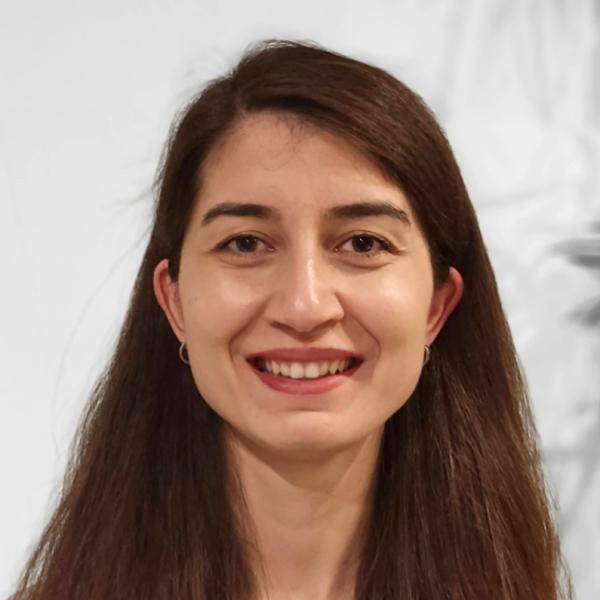
We are pleased to welcome Özge Çekirge to the Unit as a visiting student.
Özge is currently completing her PhD in Electrical and Electronics Engineering at the University of Mersin, Turkey. She is interested in investigating how brain network activity translates into behaviour. To enhance her expertise in signal and image analysis, she is joining the Dupret Group as a visiting PhD student for one year to explore the relationships between hippocampal network oscillations and behavioural motifs expressed in memory tasks.
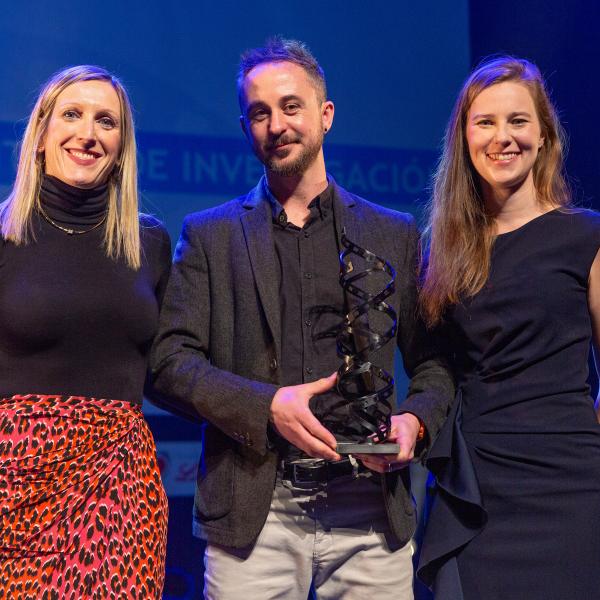
We are delighted to announce that the Unit's public outreach film ‘The Symphony of the Brain’, produced in collaboration with Oxford Sparks, has received international recognition at the #LabMeCrazy! International Science Film Festival.
The Festival is an initiative of the Science Museum of the University of Navarra, Spain, which aims to bring science closer to young people by featuring refreshing displays of science and the communication of science. Beating out stiff competition from another seven finalists, the Unit's film won the first prize in the category ‘work produced by universities and research centres’. The jury was particularly impressed by how the analogy of music and a choir made a complex topic such as brain research accessible to a broad audience, as well as the film's overall production.
Unit student Demi Brizee, who attended the award ceremony, commented, "We are incredibly proud that our film has received the first prize at the #LabMeCrazy! Science Film Festival. As a collaboration between researchers, artists and patients, our film underscores the importance of communicating brain research in an accessible, engaging and transparent manner."
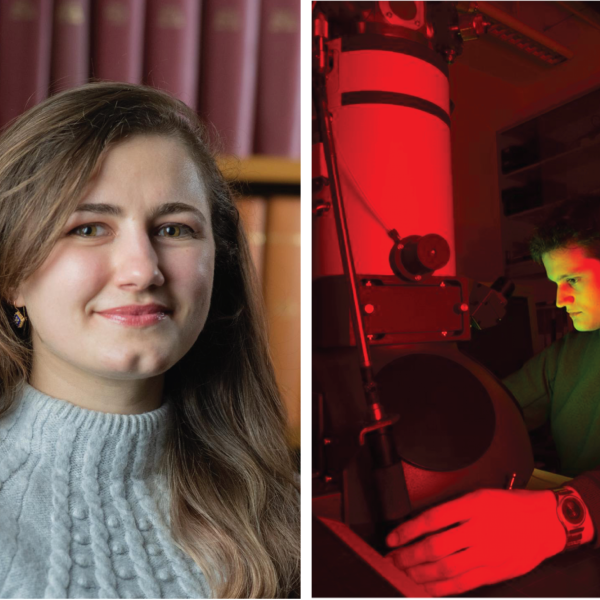
Congratulations to Unit postdoctoral researcher Ioana Grigoras and Unit Research Support Manager Ben Micklem on co-winning the Director’s Award for Open Research for 2023.
The Award is given annually, on the basis of nominations made by Unit members, to recognise and celebrate the exemplary contributions of an individual or small collective to the Unit’s Open Research activities. The Award reflects diverse contributions to Open Research, from the sharing of data, code, experimental protocols and materials, to the promotion of best practice and the provision of enabling infrastructure.
Professor Peter Magill announced the Awards at the Unit’s recent Science Day. Professor Magill commented “It gives us all great pleasure to reward the achievements of these deserved winners. Ioana has demonstrated exceptional personal commitment to open research, trailblazing the use of registered reports as best practice. Ben has played critical roles in promoting and enabling our open research activities, including the creation and curation of the Unit’s Data Sharing Platform. I commend Ioana and Ben for leading by example and taking the Unit’s open research to new levels of excellence.”
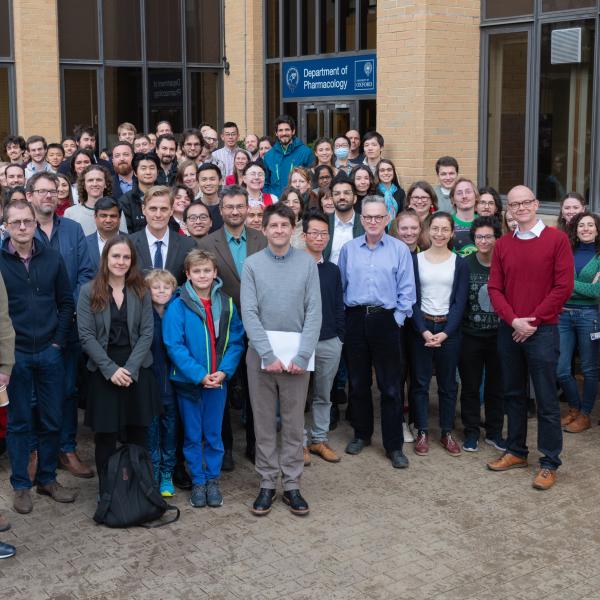
The Unit held its seventeenth Science Day on Friday 15th December 2023. Unpublished work and future research projects were the centre of discussion, and Unit members and visitors eagerly took the opportunity to give the constructive criticism that is needed to foster world-leading collaborative research and innovation.
There were 8 short research talks and 13 poster presentations, most of which were given by the Unit's early-career scientists. Attendees were also treated to two Keynote Lectures: A first by Professor Dora Hermes of the Mayo Clinic Rochester, USA, in which she gave an insightful account of visual and electrical stimulation of human brain circuits; and a second lecture by Professor Kai Miller of the Mayo Clinic Rochester in which he showcased stereo-electroencephalography as a tool to characterise the brain circuits underlying movement as well as to discover novel electrical stimulation strategies for therapy.
Unit Director Professor Peter Magill commented: “A record turnout and a great day. Unit members and our guests were clearly energised by the chance to meet and exchange ideas, and it was exciting to see how the work of the Unit’s researchers and technologists is revealing important new insights into brain function and dysfunction.”
